#latest christian gospel
Text
youtube
#Irene Assenga ! Time Is Over#Irene Assenga#irene assenga music#Time Is Over Official Audio by Irene Assenga#Irene Assenga with Time Is Over Official Audio#Unveiling Irene Assenga's Latest Hit#Irene Assenga's Time Is Over (Official Audio)#Irene Assenga's Time Is Over Official Audio#Irene Assenga's Powerful New Single Time Is Over#Irene Assenga's Latest Release Time Is Over#gospel music#worship music#christian songs#christian song#faith in god#god music#worship#song#Youtube
1 note
·
View note
Text
End Times Prophecy Headlines: November 4-6, 2022
End Times Prophecy Headlines: November 4-6, 2022
End Times Prophecy Report
HEADLINES
FRIDAY-SATURDAY-SUNDAY
November 4-6, 2022
And OPINION
“And Jesus answered and said unto them, Take heed that no man deceive you.”
—Matthew 24:4
“The best way to keep a prisoner from escaping is to make sure he never knows he’s in prison.”
—Fyodor Dostoevsky
===INTERNATIONAL
UKRAINE: Russia-Ukraine war live: Zelenskiy says Putin U-turn on grain shows ‘failure…
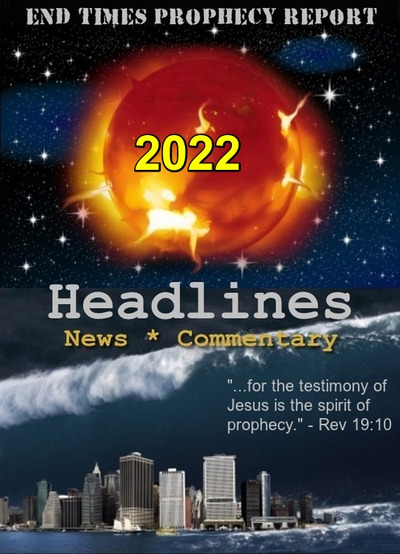
View On WordPress
#end times sadness#Exalted by the world: Henry and William James#faking the gospel of Jesus Christ#police find a conspiracy#the end times will still have everyday frustrations#the Letting-ObamaCare-Fail LIE#the world&039;s latest antichrist discoveries#TOLERANCE IS THE CLUB THE WORLD USES TO BEAT CHRISTIANS
0 notes
Text
Pentatonix – Amazing Grace (My Chains Are Gone) Mp3 Download + Lyrics
Pentatonix – Amazing Grace (My Chains Are Gone) Mp3 Download + Lyrics
Pentatonix – Amazing Grace (My Chains Are Gone) Mp3 Download + Lyrics Can Be Found On This Website gospelwavesng
Do you want to download Amazing Grace(My Chains Are Gone) By Pentatonix for free? Then, you are going to find the download link here.
Seasons greetings people from all around the world, We wish you all a Merry Christmas and a Happy New Year, stay blessed and always remember that Jesus…

View On WordPress
#100 Free Gospel Music#Christian Gospel Songs#Christian Worship Songs#Church Worship Songs#Contemporary Gospel Songs#download Gospel Songs#Free Lyrics#Free Songs Lyrics#Free Worship Lyrics#Free Worship Songs#Gospel Lyrics#Gospel Mixtapes#Gospel Songs#Gospel songs mp3 download#Gospel songs mp3 mixtapes#Gospelkey Songs#Latest Gospel Songs#Play Audio#Play Gospel Songs#Play Video#Top 1000 Gospel Songs#Trending Gospel Songs#Worship Songs Download
0 notes
Text
[Video] Nara Ekele - Faith Ajiboye Ft. Psalmos
[Video] Nara Ekele – Faith Ajiboye Ft. Psalmos
Nara Ekele by Faith Ajiboye Featuring Psalmos is a song God gave me in the place of deep communion and fellowship with Him. It is a song of gratitude to God and a reflection of His grace, mercy and love that makes us triumph over tribulations and trials.
There is no situation that can withstand the power of Thanksgiving. Your Gratitude Mode is about to be reset as you continually watch and listen…

View On WordPress
#Christian Music#Download Nigerian Gospel Music#Faith Ajiboye#Gospel Video#Gospel Videos#Latest Gospel Videos#Music Video#Naija Music Video#Psalmos
0 notes
Text
To follow up on my Hosanna poll, I think before things go any further, it'd be good to actually explain and define it. I was initially going to wait until the end of the poll, but it seems that google is giving people a lot of bad and/or conflicting answers and I'd rather people walk away with the correct information.
So! Hosanna is an anglicized version of the Hebrew words "hosha na" [הושע נא or as a contraction הושענא]. Hosha na is a little enigmatic and hard to translate, but the simplest translation is probably "save us, please." It's traditionally used as an exclamation to G-d to rescue us, but it also has shades of being a triumphant shout (the implication being confidence that G-d will save us.)
Jews say "hoshanot" (the plural of hosha na) as part of our traditional Sukkot liturgy, and is something we do still today.
For us, the multi-faceted meaning of the root word allows us to have multiple layers of meaning. During Sukkot, we start praying for rain in its proper season and amounts, and we shake the lulav and etrog as part of these processions and liturgy. On Hoshana Rabba [the "great hoshana"], the last day of Sukkot, we process around the bimah (front lectern) seven times as a completion of our season of repentance and our starting of the new year with abundant blessings.
My siddur (prayer book) Lev Shalem has this as an explanation and translation:
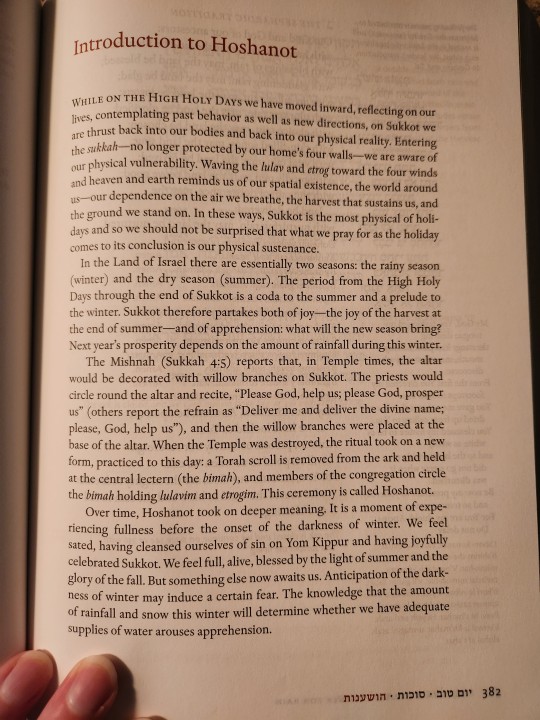
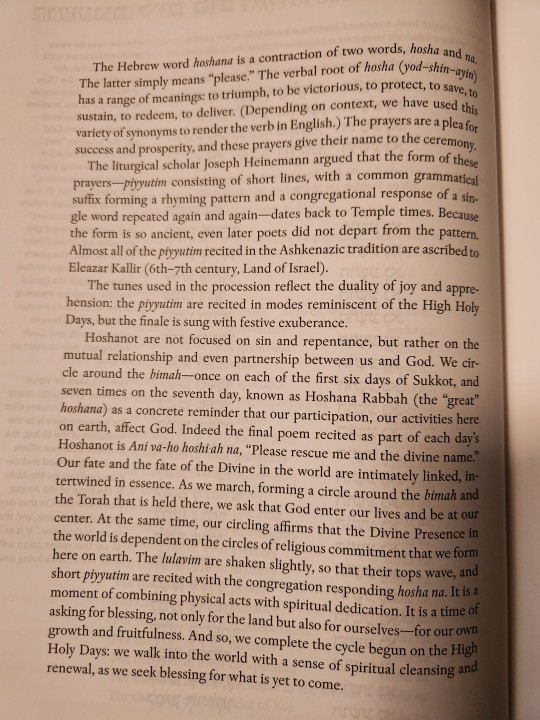
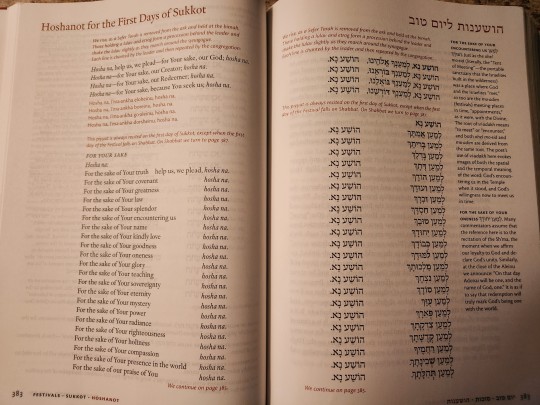
[Image ID is of the Lev Shalem siddur, pages 382 & 383 - I tried hard to find a pdf of this that would be readable using a screen reader, but the versions I'm finding cut off at pg. 376 at the latest. If anyone has bandwidth to type this up, I would greatly appreciate it]
For the curious, here is a recording of the Hoshanot liturgy and procession:
youtube
Christians mostly know the word from the gospels and hymns.
Here is what Wikipedia says about its use in Christianity:
Historical meaning
Since those welcoming Jesus were Jewish, as of course Jesus himself was, some would interpret the cry of "Hosanna" on the entry of Jesus in its proper meaning, as a cry by the people for salvation and rescue.
Christian reinterpretation
"Hosanna" many interpret as a shout of praise or adoration made in recognition of the messiahship of Jesus on his entry into Jerusalem
It is applied in numerous verses of the New Testament, including "Hosanna! blessed is the one who comes in the name of the Lᴏʀᴅ!" (Matthew 21:9,15; Mark 11:9–10; John 12:13), which forms part of the Sanctus prayer; "hosanna in the highest" (Mark 11.10); and "hosanna to the Son of David" (Matt 21:9). These quotations, however, are of words in the Jewish Psalm 118. Although not used in the book of Luke, the testimony of Jesus' entry into Jerusalem is recorded in Luke 19.
In church music
The "Hosanna Anthem", based on the phrase Hosanna, is a traditional Moravian Church anthem written by Bishop Christian Gregor of Herrnhut sung on Palm Sunday and the first Sunday of Advent. It is antiphonal, i.e. a call-and-response song; traditionally, it is sung between the children and adult congregation, though it is not unheard of for it to be done in other ways, such as between choir and congregation, or played between trombone choirs.
The bottom line:
Jews and Christians have different connections, associations, and meanings attached to this word as expressions of our different theologies and texts. The word is derived from a Hebrew word and was created by Jews and is still used by us today. (Like literally today - we are currently in the middle of the Sukkot festival.) Christians changed the meaning to fit within their own context, and pronunciation of the word evolved with linguistic drift over time. In the same way that there's not a reason to pitch a fit over saying Jesus rather than Yeshua, there's no compelling reason to change hosanna back to hosha na; if anything, the distinction helps make it clear that it's effectively a different word and concept from ours.
On the other hand, I do think Christians ought to know the original meaning of the word if they're going to use it. To only ever know their version when it was derived from ours is yet another small way of playing into supercessionism by erasing and replacing the Jewish context of things that were originated in Judaism that Christians have embedded in Christianity. While the Christians of today cannot unwind the supercessionism of Christian history, they *can* choose to understand their present Christianity in ways that do not play into supercessionism and that respect the Jewish community of today.
I hope this was helpful and gives folks a new perspective on an obscure Hebrew word!
472 notes
·
View notes
Text




Poems for Palestine
Poetry empowers us to imagine liberation that we can then work towards, together. In the latest episode of the Blessed Are the Binary Breakers podcast, listen to — or read along in the episode transcript — Jewish, Christian, and Muslim poems by Palestinians and their supporters.
Some pieces explore the Nativity story through this lens: Christmas joy must break bread with pain, birthing solidarity with all oppressed peoples.
Listen wherever you get podcasts — or visit here for a direct link.
Image descriptions are in the alt text and below the readmore.
A photo of Professor Refaat Alareer with a quote from him reading, “We’ve never been to other parts of Palestine because of the Israeli occupation, but… our parents and grandparents — especially our mothers — have been telling us stories… Our homeland turns into a story. In reality we can’t have it, but…we love our homeland because of the story. And we love the story because it’s about our homeland. And this connection is significant. Israel wants to sever the relationship between Palestinians and the land… And literature attaches us back, connects us strongly to Palestine…creating realities, making the impossible sound possible."
A photo of Hiba Abu Nada with an excerpt from her poem "I Grant You Refuge" reading, "I grant you refuge from hurt and suffering. With words of sacred scripture I shield the oranges from the sting of phosphorous and the shades of cloud from the smog. I grant you refuge in knowing that the dust will clear, and they who fell in love and died together will one day laugh."
A photo of Aurora Levins Morales with an excerpt from her poem "Red Sea," reading "We cannot cross until we carry each other, all of us refugees, all of us prophets. …this time no one will be left to drown and all of us must be chosen. This time it's all of us or none."
A photo of Basman Derawi with an excerpt from his poem "His Name Was Essa" reading, "Essa means Jesus. My friend was neither God nor prophet, but a rebel soul and humorist, like Jesus. When Essa laughed, everyone laughed. I think joy was his gospel. …I can see him now sitting in heaven nodding, laughing."
#christmas#palestine#palestinian poetry#aurora levins morales#basman derawi#refaat alareer#hiba abu nada#podcast#blessed are the binary breakers#log#winter 2023
72 notes
·
View notes
Text
For Fain, the Bible is more than a source of feel-good inspiration. It boasts a sharp economic justice edge, leaving no doubt that God takes sides in the perennial struggle between the haves and have-nots. He insisted that the UAW’s is a “righteous fight” and commented, “There’s one more piece of scripture I like,” citing Matthew 19:23–24, in which Jesus declares, “It is easier for a camel to pass through the eye of a needle than for a rich man to enter the Kingdom of God.”
Fain went on to offer a hard-nosed interpretation, mapping the gospel’s stark contrast between the Kingdom of God and hell onto the inequitable landscape of the modern United States:
Why is it easier to pass through the eye of a needle than for a rich man to enter the Kingdom of God? I have to believe that answer, at least in part, is because in the Kingdom of God no one hoards all the wealth while everybody else suffers and starves. In the Kingdom of God no one puts themselves in a position of total domination over the entire community. In the Kingdom of God no one forces others to perform endless, backbreaking work just to feed their families or put a roof over their heads. That world is not the Kingdom of God. That world is hell. Living paycheck to paycheck, scraping to get by? That’s hell. Choosing between medicine and rent is hell. Working seven days a week for twelve hours a day, for months on end, is hell. Having your plant close down and your family scattered across the country is hell. Being made to work during a pandemic and not knowing if you might get sick and die, or spread the disease to your family, is hell. And enough is enough.
[...]
As anyone acquainted with the longer histories of Christianity and labor knows, there’s no paradox here. When Fain quotes scripture in the service of the UAW’s fight, he is tapping into a deeply pro-labor vein of Christianity, one that we haven’t heard much about in recent years but in its heyday helped galvanize powerful working-class movements.
For countless workers throughout American history, traditional faith and labor militancy have gone hand in hand. In this wider context, Fain emerges on the national scene not as a paradox but as the latest in a long line of labor prophets who have stoked the flames of egalitarian faith and held big business’s feet to the fire.
From the labor movement’s earliest days, workers insisted that they organized because the Bible told them so. Union-friendly newspapers brimmed with scriptural quotations. The Gospel of Luke supplied some perennial favorites: “Woe unto you that are rich! For ye have received your consolation” (6:24) and “the laborer is worthy of his hire” (10:7). Perhaps none was as scintillating as the fifth chapter of the Epistle of James, which reads, “Come now, you rich people, weep and wail for the miseries that are coming to you. Your riches have rotted. . . . Listen! The wages of the laborers who mowed your fields, which you kept back by fraud, cry out, and the cries of the harvesters have reached the ears of the Lord of hosts” (5:1-2a, 4).
69 notes
·
View notes
Text

After we got struck by the ‘Disco Fever’ (the Poll is 👉 here)
and checked the new pack 🏚, we return to the party.
It is shortly after Ji Ho and Vlad had to emergency-charge the bond because it was all too much for Vlad. The stressful party, the Vision and the draining (but very telling) conversation with Morgan brought him to his limits.
Ji Ho sensed that through the bond and since they don’t talk to each other, Ji Ho just left the party, trusting that Vlad would follow him home, because their bond wants them to be close to each other.

And Ji Ho was right. Vlad followed him.
(Just like in this scene after the Prom a few months ago)
I will follow him
Follow him wherever he may go
And near him, I always will be
For nothing can keep me away
He is my destiny

I will follow him
Ever since he touched my heart I knew
There isn't an ocean too deep
A mountain so high it can keep
Keep me away
Away from his love

From this song I have two favourite versions:
I Will Follow Him - Peggy March 1963 (because the voice!)
and from the Movie Sister Act with Whoopie Goldberg:
I Will Follow Him - Gospel Version 1992
(I am not christian but this is the scene from the movie and worth watching. If you happen to spot a teacher from Hogwarts, let me know in the comments who it is!)

They are finally back at the Institute to charge the bond.
It is a bit dangerous because no one is there to watch them and stop them if they should lose control again...
What are you looking at Ji Ho?!

...

I love him! I love him! I love him!
And where he goes
I'll follow! I'll follow! I'll follow!
He'll always be my true love (My true love! My true love!)
From now until forever! (Forever, forever)

From the Beginning ~ Underwater Love ~ Latest
#The 70s Party#sims 4 simblr#sims 4 story#sims 4 occult#sims 4 vanilla#Woo Ji Ho#Vladimir Tepesz#Saiwa#giga byte#Jeb Harris#Jack Callahan#Kiyoshi Ito#Sebastian#Belgraves Institute#Copperdale#Underwater Love#charging the bond
54 notes
·
View notes
Text
Book-banning wingnuts are a tiny, vocal minority
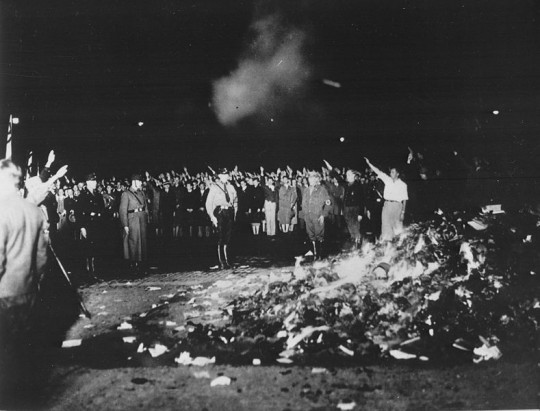
“The Moral Majority” is a stupendous marketing gimmick: it allowed a small minority of vicious, paranoid, hateful creeps to brand themselves as a “silent majority” who were all around us, afraid to speak their minds.
The impact of this wasn’t merely in convincing politicians and the press that the views of these unhinged, fringe conspiratorialists should be taken seriously — just as important is the zap it put on the heads of their enemies, the people who wanted to love whom they loved, take care of one another, and let folks be themselves.
For these people, the Moral Majority created the impression that they themselves were the minority. These people were convinced that their broadly shared, commonsense values — entiirely compatible with the Christian gospels, as it happens — made them outliers.
This is such a useful move for the far right that they’ve pulled it over and over again. Take the climate emergency: the looming peril it presents to all of us is so manifest that the vast majority of Americans support taking immediate, decisive action to address it. However, Americans think they’re all alone in this, underestimating popular support for climate action by 50%:
https://www.nature.com/articles/s41467-022-32412-y
Take the whole Sanders 2020 platform: Medicare for All, a $15 minimum wage, student debt cancellation, an end to foreign military adventures, funding for rail and infrastructure, a climate transition, and taxes on the super-rich — wildly popular among the electorate, but somehow credibly pooh-poohed as unrealistic because “no one will vote for it.”
The latest mutant strain of right wing culture-war swamp fever is the supposed crisis in library books, spawning a million viral videos of swivel-eyed, spittle-flecked “Christians” demanding that school libraries and public libraries divest themselves of books that mention gender, sexuality and race, in the name of preventing “groomers.”
Ironically, this latest blood libel’s most prominent public figures are a collection of kid-fiddlers and human traffickers from Ron DeSantis and Greg Abbot (who trafficked a baby!), to the pardon-thirsty ephebephile Matt Gaetz. As ever, it takes one to know one:
https://doctorow.medium.com/takes-one-to-know-one-104d7d749408
The book-burning crowd sure do know how to put on a spectacle, but it’s mere puffery. Americans may be weird, but they don’t want to ban books. They really don’t! A new survey from the Everylibrary Institute confirms it:
https://www.everylibraryinstitute.org/bookbanpoll
The nonparitsan pollsters at Embold Research asked 1,123 registered voters from August 31st-September 3rd how they felt about book banning, and those people gave a resounding no. For starters, Americans love libraries. Libraries have a higher approval rating than any governor, than Donald Trump, than Joe Biden, than the GOP and than the Democratic Party. Don’t mess with libraries.
Majorities (D-95%, I-80%, R-55%) oppose book banning and will consider politicians’ policies on book bans at election time.
Only 8% of voters think “there are many books that are inappropriate and should be banned” (this isn’t evenly distributed — only 31% of Republicans oppose book banning under any circumstances).
Only 18% of voters want books banned on the basis of race and “CRT.” More than 90% of voters oppose the list of classic novels that the right has proposed banning from classrooms and children’s collections at libraries.
Only 1/3 of voters support bans on books about sexuality. 75% of voters will consider book banning in the coming midterm elections. The majority of voters are “concerned” about book-ban bills.
You are not in the minority. You are the majority. Those book-banning freaks at the school-board meeting? They are freaks — they are on the fringe, out-of-step with American values and the American electorate. Don’t let them convince you otherwise.
[Image ID: The public burning of non-German writings and books on the opera square Unter den Linden in Berlin, by students of the Berlin universities.]
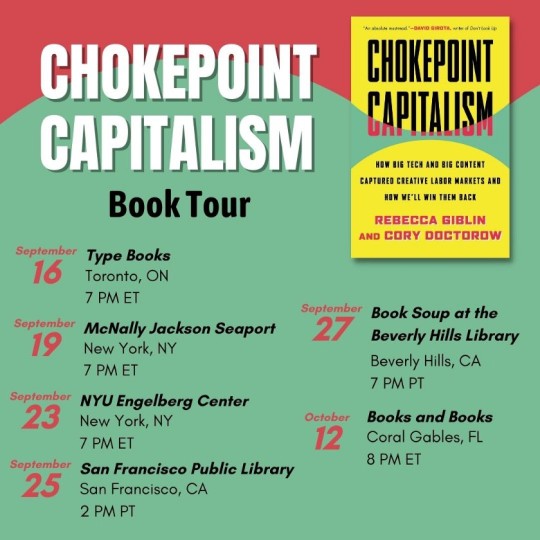
82 notes
·
View notes
Text
A comedy sketch lasting over four minutes called “Vacation Church” was aired on the latest episode of NBC’s “Saturday Night Live.” The sketch portrays the story of the death and resurrection of Jesus Christ, along with a Bible verse.
This led a former cast member to wonder if it was the first time the show had shared the ���Gospel” message.
The sketch features a Catholic family from Ohio, consisting of two parents and two children, attending church while on vacation in Jamaica. By Tuesday afternoon, the video had amassed over 1.7 million views…
3 notes
·
View notes
Text



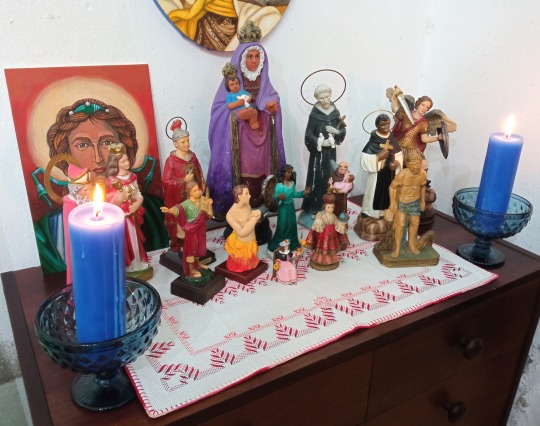
One of the most urgent tasks this week was to create a new altar to the group of Spirits of Biblical origin, which in Espiritismo can be part of several courts (one for angels, one for saints, and one for the holy family), but usually worshipped as one as most Afro -Latino Espiritistas and Curanderos, like me, are raised as Christians.
Tomorrow is the day of the celebration of the Christ in our town, it's a huge religious event (and even a civil holiday), so we wanted to have this done before that date - and even if I had the busiest week ever, and it's just the bare bones for now, it is done.
Also, I am showing my latest icon of Jesus for the first time - it's acrylic on canvas, 40 x 30 cms (16 x 12 inches) and features one of my favourite quotes from the apocryphal Gospel Of Thomas: "Whoever will drink from my mouth will become like me. I myself will become he. And what is hidden will be revealed to him."
4 notes
·
View notes
Text
Claim: The New Testament canon as it currently exists is in a substantially reduced form from widely-accepted Christians writings from the first generation of the church, in particular neglecting gnostic writings. The Council of Nicaea established the canon because either the bishops whose views won out therein or Constantine did not prefer gnostic works.
Reality: The Council of Nicaea did not discuss the canon of the New Testament. The Athanasian and Arian sides were seemingly in agreement over the canon. Nicaea was convened principally to discuss matters of Christology, with the dating of Easter as a secondary issue.
The New Testament canon as it currently exists is largely in agreement with the set of works quoted by Ignatius of Antioch, Polycarp, and Irenaeus (all of whom died decades if not over full century before Constantine was born), along with the Muratorian fragment, written perhaps a full century before Constantine was born.
Ignatius quoted or alluded to most of the current New Testament canon (including many of Paul’s letters and perhaps all four canonical gospels), and, except Revelation, those books he did not were very short. He was martyred at the latest in the 140s, about 130 years before the birth of Constantine.
Polycarp quoted or alluded to most of the current New Testament canon as well, only neglecting John among the gospels. For what it is worth, he quotes two of John’s epistles. Again, most of the books he did not cite were very short in length, and there is only one known surviving work of his, an epistle to the Philippians. He was martyred in the middle of the second century, about 120 years before the birth of Constantine.
Unlike Ignatius and Polycarp, who contended with the proto-gnostics, Iraeneus had to contend with a more developed expression of gnosticism, along with Marcion and his followers, who promoted a very reduced form of the New Testament. Iraeneus wrote an idiosyncratic reasoning for why no fewer and no more gospels were to be considered canon than the now-accepted set of four, but given the quotations from earlier church fathers, it seems he was rationalizing a set of gospels that was already in wide use. He quoted or alluded to every book presently in the New Testament, with the exception of a few short, non-Pauline epistles. Note that he also considered 1 Clement and the Shepherd of Hermas to be Scripture. He died at an unknown date, under unknown circumstances, but likely sometime in the early third century, well before the birth of Constantine.
The Muratorian fragment is a name used to refer to the collation of two obscure manuscripts found in Italy containing a list of the books accepted at the time its original text was written as being in the New Testament. The manuscripts themselves are of medieval origin, but were copied from a text that refered to the Shepherd of Hermas as being a recent work, and attributing it to the brother of Pius, bishop of Rome AD 140-154. This suggests the work was originally written around AD 170, a century before the birth of Constantine. As the name suggests, the whole of the text which has survived to our day is in a fragmentary condition, but it mentions Luke and John being a third and fourth gospel, in addition to recognizing thirteen of Paul’s epistles, two epistles of John (which of them was included is unknown, but the Muratorian fragment quotes 1 John, suggesting either 2 or 3 John was excluded), the epistle of Jude, and Revelation. The only two books considered in the fragment not included in the canon are the Apocalypse of Peter and the Wisdom of Solomon. The former was described by the author as being rejected by some churches. The latter is included in the Old Testament by some groups. Hebrews, James, and the epistles of Peter were not discussed in the fragment. While the inclusion of Matthew and Mark as the first and second gospels is speculative, it is ludicrous to suggest the Gospel of John, which begins with describing Jesus as a fleshly being, Colossians, which describes the fullness of God dwelling in Jesus bodily, or the epistles of John, any two of which would have collectively described the protognostics as antichrist at least once, would coexist in the same canon as any gnostic gospel.
The only writings for which there seems to be some continuing disputes into the late second century were Philemon, Hebrews, some of the general epistles, and Revelation. However, besides these and the rest of the accepted New Testament, the closest to a somewhat accepted book in the New Testament canon was the Shepherd of Hermas, a decidedly non-gnostic work that was rejected due to its obvious post-apostolic origin and disconnection in concepts from the rest of Scripture. The overall trend, then, was for the canon of the New Testament to expand to its current form.
#Canon of Scripture#Council of Nicaea#Constantine#Nicaea#New Testament#Ignatius of Antioch#Irenaeus#Polycarp#Muratorian Fragment#Muratorian canon#gnostic gospels#Shepherd of Hermas#Apocalypse of Peter#gnosticism#protognosticism#protognostics
1 note
·
View note
Text
The doctrine of formal democracy is not scientific Socialism, but the theory of so-called natural law. The essence of the latter consists in the recognition of eternal and unchanging standards of law, which among different peoples and at different periods find a different, more or less limited and distorted expression. The natural law of the latest history – i.e., as it emerged from the Middle Ages – included first of all a protest against class privileges, the abuse of despotic legislation, and the other “artificial” products of feudal positive law. The theoreticians of the, as yet, weak Third Estate expressed its class interests in a few ideal standards, which later on developed into the teaching of democracy, acquiring at the same time an individualist character. The individual is absolute; all persons have the right of expressing their thoughts in speech and print; every man must enjoy equal electoral rights. As a battle cry against feudalism, the demand for democracy had a progressive character. As time went on, however, the metaphysics of natural law (the theory of formal democracy) began to show its reactionary side – the establishment of an ideal standard to control the real demands of the laboring masses and the revolutionary parties.
If we look back to the historical sequence of world concepts, the theory of natural law will prove to be a paraphrase of Christian spiritualism freed from its crude mysticism. The Gospels proclaimed to the slave that he had just the same soul as the slave-owner, and in this way established the equality of all men before the heavenly tribunal. In reality, the slave remained a slave, and obedience became for him a religious duty. In the teaching of Christianity, the slave found an expression for his own ignorant protest against his degraded condition. Side by side with the protest was also the consolation. Christianity told him:– ”You have an immortal soul, although you resemble a pack-horse.” Here sounded the note of indignation. But the same Christianity said:– ”Although you are like a pack-horse, yet your immortal soul has in store for it an eternal reward.” Here is the voice of consolation. These two notes were found in historical Christianity in different proportions at different periods and amongst different classes. But as a whole, Christianity, like all other religions, became a method of deadening the consciousness of the oppressed masses.
Natural law, which developed into the theory of democracy, said to the worker: “all men are equal before the law, independently of their origin, their property, and their position; every man has an equal right in determining the fate of the people.” This ideal criterion revolutionized the consciousness of the masses in so far as it was a condemnation of absolutism, aristocratic privileges, and the property qualification. But the longer it went on, the more if sent the consciousness to sleep, legalizing poverty, slavery and degradation: for how could one revolt against slavery when every man has an equal right in determining the fate of the nation?
Rothschild, who has coined the blood and tears of the world into the gold napoleons of his income, has one vote at the parliamentary elections. The ignorant tiller of the soil who cannot sign his name, sleeps all his life without taking his clothes off, and wanders through society like an underground mole, plays his part, however, as a trustee of the nation’s sovereignty, and is equal to Rothschild in the courts and at the elections. In the real conditions of life, in the economic process, in social relations, in their way of life, people became more and more unequal; dazzling luxury was accumulated at one pole, poverty and hopelessness at the other. But in the sphere of the legal edifice of the State, these glaring contradictions disappeared, and there penetrated thither only unsubstantial legal shadows. The landlord, the laborer, the capitalist, the proletarian, the minister, the bootblack – all are equal as “citizens” and as “legislators.” The mystic equality of Christianity has taken one step down from the heavens in the shape of the “natural,” “legal” equality of democracy. But it has not yet reached earth, where lie the economic foundations of society. For the ignorant day-laborer, who all his life remains a beast of burden in the service of the bourgeoisie, the ideal right to influence the fate of the nations by means of the parliamentary elections remained little more real than the palace which he was promised in the kingdom of heaven.
- Leon Trostky, Terrorism and Communism, ch. 3 (1920)
12 notes
·
View notes
Text
Travis Greene – Thank You For Being God mp3 (Video & Lyrics) download
Travis Greene – Thank You For Being God mp3 (Video & Lyrics) download
Download mp3 Travis Greene – Thank You For Being God
Artist Name: Travis Greene
Track Title: Thank You For Being God
Recorded: 2015 Music
Country: Naija Music
Album Name: The Hill Album
Category: Gospel Music
Who won’t want to listen to such a song titled “Thank You For Being God” especially when it’s coming from Travis Greene.
DOWNLOAD…
View On WordPress
#100 Free Gospel Music#Christian Gospel Songs#Christian Worship Songs#Church Worship Songs#Contemporary Gospel Songs#download Gospel Songs#Free Lyrics#Free Songs Lyrics#Free Worship Lyrics#Free Worship Songs#Gospel Lyrics#Gospel Mixtapes#Gospel Songs#Gospel songs mp3 download#Gospel songs mp3 mixtapes#Gospelkey Songs#Latest Gospel Songs#Play Audio#Play Gospel Songs#Play Video#Top 1000 Gospel Songs#Trending Gospel Songs#Worship Songs Download
0 notes
Text
This is a very important and relative word to this time we are in. This excerpt really jumped out to me: “…Do you hear the voice of God or do you only listen to the voices of men; perhaps, some self-help motivational preacher, a favorite pastor, teacher, or televangelist, or an internet prophet? These voices often contradict one another and just as often contradict themselves. The day is coming when the voice of God will be effectively silenced in our nation as we approach the end of this age…” Now is the time to turn off all the other inputs and get the Word of God down deep on the inside of us so that we will not be deceived!!!
“A FAMINE OF HEARING THE WORDS OF THE LORD by Lynette Hughes :
Amos 8:11-12: “Behold, the days are coming,” says the Lord God, “That I will send a famine on the land, Not a famine of bread, Nor a thirst for water, But of hearing the words of the Lord. They shall wander from sea to sea, And from north to east; They shall run to and fro, seeking the word of the Lord, But shall not find it.”
The Book of Amos was a warning for the Israelites, but it is also a warning relevant for the people of God today. He urgently warns us that if we continue to refuse to listen and obey God’s commands, there is going to come a time when the Word of the Lord will become scarce. God’s word will still be available, but it will be rare to find it. This famine is not something we should look for in the future but a very real and serious problem of the present day. In recent years we have witnessed a drastic decline in the preaching of righteous living in the church in America. Multitudes of pastors cower in fear of preaching or teaching the Gospel of Christ as it might offend sinners or make compromisers uncomfortable, or upset the church’s financial supporters and create large deficits in the available cash flow for staffing salaries, worship equipment and the latest church building project.
2 Timothy 4:3 says “For the time will come when men will not tolerate sound doctrine, but with itching ears they will gather around themselves teachers to suit their own desires.” The pews are filled with professed Christians whose spiritual ears begin to annoyingly itch when they hear the preaching of God’s Word. Those with itchy ears do not want to hear the hard truth of God's word because it will condemn their self-centered, worldly lifestyles. They have an insatiable desire to have their ears scratched with soft, soothing words that condone what they want to believe rather than what God's Word plainly states. They have no problem finding ear-tickling teachers who will eagerly water down the gospel, permit their unbiblical theology to go unchallenged, and assure them all is well in return for praise, approval and financial gain.
All across our nation, preachers are preaching a corrupt and worthless gospel that has no power to open the eyes of the spiritually blind or release people from their captivity to sin. The average Christian has filled up on spiritual “junk food” that has curbed their appetite but will only satisfy momentarily. In the natural, when a person is undernourished physically, sickness becomes a terrible problem because the weakened body is unable to fight off germs and disease. The same holds true in the spiritual realm. When there is a famine for the Word of God in the Church, when one does not partake of the Bread of Life, spiritual malnutrition, sickness and death soon follows.
Sin has become an outdated concept and is being culturally redefined while influential self-proclaimed church leaders sit silently as their followers are quietly swayed by popular opinion on such things as the definition of marriage, the acceptability of illicit cohabitation and the normalization of sexual deviance and killing children in the womb. Things formerly called ‘sin’ is now being touted as a disease called ‘addiction.’ And now not only Oprah but a plethora of false preachers, teachers, and modern-day “prophets” are perverting God’s Word and redefining for millions of unbelievers and nominal believers what it means to be a Christian. There is a battle for truth taking place. Our society has dropped the façade of religious toleration, and every effort is being made to suppress and dehumanize those who proclaim the truth of God’s Word.
This prophecy in the book of Amos has a dual application. Not only does it say that the words of the LORD are going to be scarce, but, also, that the people will not be able to HEAR or understand them. When they do hear them, none of God’s words will find entrance into their minds. They will make no sense to them. The words will sound like meaningless gibberish. They will not recognize them as coming from God, because they have hardened their hearts and willfully refused to listen to the warnings delivered by God’s watchmen to repent and obey.
Just as physical hearing loss may cause confusion, the same is true for spiritual hearing loss. Hearing impaired Christians don’t recognize their spiritual confusion is directly connected to their spiritual deafness. Physical hearing loss has been linked to premature death, but spiritual hearing loss can lead to eternal death.
If we have physical hearing loss, we must make every effort to focus intently on the person speaking. If you can only hear one or two words out of 5 words, you aren’t going to be able to make sense of what’s being said. Many Christians don’t want to listen that closely. They’re content just to caught a word here or there. What few realize is that spiritual deafness is the result of failing to listen intently to what God is saying. It’s a sin of pride that doesn’t want to hear correction. Zechariah 7:11-13 tells us: “But they refused to pay attention; stubbornly they turned their backs and covered their ears. They made their hearts as hard as flint and would not listen to the law or to the words that the Lord Almighty had sent by his Spirit through the earlier prophets. So, the Lord Almighty was very angry. ‘When I called, they did not listen; so when they called, I would not listen,’ says the Lord Almighty.”
We are in the midst of a catastrophic famine of NOT HEARING the Word of God. A blanket of deafness has fallen upon God’s people. We complain that God is silent, when the problem is: We are not listening. Jeremiah 6:10 says this hearing loss occurs when people ‘take no pleasure…in the word of the Lord.’ Rather than feast on the pure word of God, many despise it and prefer to gorge on lies. People have allowed their hearts to become hard rather than repent and obey. Even now many are running to and fro trying to find spiritual truth, yet when they hear it, they stubbornly refute it or ignore it because it goes against their traditions, their personal conclusions, and their carnal desires. In their intellectual arrogance, they have been led astray by the opinions and ideologies of men who have abandoned sound biblical teachings and teach perverse manmade gospels inspired by demons. Complicit in their own deception, God is allowing the preaching of His pure, unadulterated Word to become harder and harder to find, and it is only going to get worse.
This famine is the result of indifference to the Word of God, because it is neither valued nor obeyed. We are unable to prevent the perilous times that we are experiencing, but we can survive – we can even thrive. Now is the time to treasure the word of God in our hearts. None of us know how long it will be before the Bible is banned in America, but it is coming. Now is the time to store up our spiritual barns so we can nourish others who are parched with thirst and spiritually hungry. We cannot give what we don’t have.
How many of us are numbed, unresponsive, not reflecting, not internalizing, and not acting upon the word? If we value the truth of God’s Word, we will continually search it out, we will meditate on it until we hear God speaking to us through it: We will live our lives by it.
Are you prepared for the perilous days ahead? Do you hear the voice of God or do you only listen to the voices of men; perhaps, some self-help motivational preacher, a favorite pastor, teacher, or televangelist, or an internet prophet? These voices often contradict one another and just as often contradict themselves. The day is coming when the voice of God will be effectively silenced in our nation as we approach the end of this age.
It is vital that we understand a time of deep darkness is gaining ground, even now the word of God is increasingly discredited and proclaimed irrelevant. At the present, we have Bibles in abundance, yet even among professed believers few read it and even fewer understand it. But the veracity of God’s written word will never change. Have you prepared yourself to live in the midst of this spiritual famine? Is it possible you could be one of those who will be wandering, seeking and looking for the word of the Lord and be unable to find it? Are you searching the Scriptures for yourself? Do you hear God's voice? If not, is it because God is not speaking, or is it because you are not listening? Have you allowed your heart to harden? Are you uncorrectable and unteachable?
My friends, the feast is over and the famine has begun! We must begin to prepare for what lies ahead. Are you stocking your pantry with the food that can never be affected by drought or famine: that endures forever and leads to everlasting life?”
9 notes
·
View notes
Text
Does anyone else think that Christians are gonna go apeshit in the early 2030s? According to historical figures and events mentioned in the gospels, Jesus probably died in the year 30 or 33, so I bet you anything that some right-wing nutjobs are gonna predict the end of the world will come on Easter Sunday, April 21, 2030 or April 17, 2033. It'll be like Y2K or the 2011 rapture, and when nothing happens they'll just shift the goalpost and say "well, actually it'll be Easter 2038," because that one falls on April 25, the latest date possible date it could be. "Ooh, symbolsm! Ooh, finality!" And then they'll say that it'll come in the 2060s or 2070s to coincide with when the gospels were written (my money says they'll pick July 4, 2076; American Christians love making it all about themselves, so when's a better time for Jesus to come back than the tricentennial?)
#2030#2033#end of the world#eschaton#eschatology#jesus#end times#easter#apocalypse#symbolism#prediction
16 notes
·
View notes